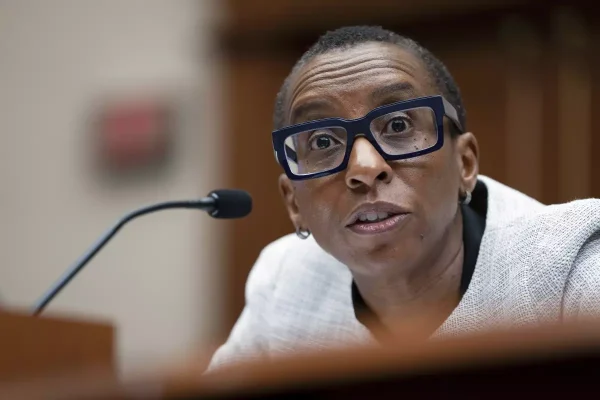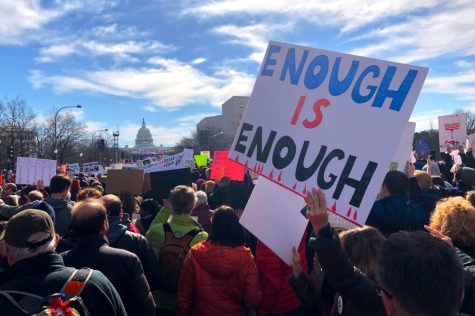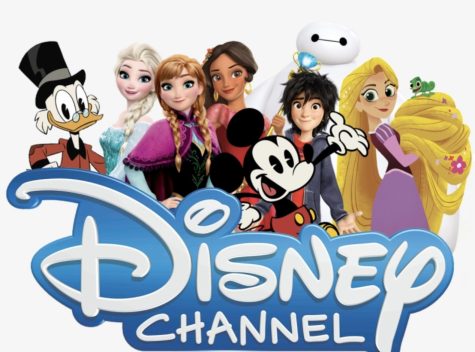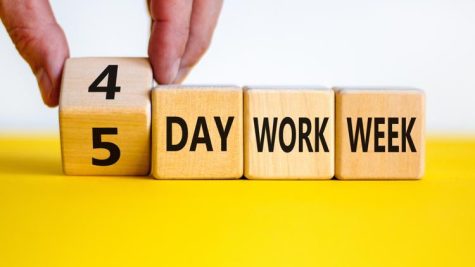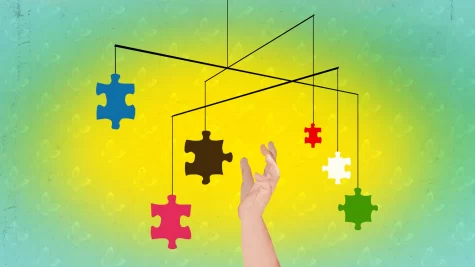Feminism: What Does It Mean to You?
June 21, 2015
Feminism. Although a word often used in our generation, many people who use it have no idea what it really means. According to the Oxford dictionary, feminism is the “advocacy of political, social, and economic equality between women and men.”
In the society we live in today, this word has a negative connotation to many people. Why is this? Why is a term that is encouraging the universal rights of women viewed negatively or as a joke?
When asked what feminism means, and what the word meant to them, the opinions of Eleanor Roosevelt HS students varied.
Some female students, like sophomore Yemisi Odunlami, believe that feminism is based on equality. “A feminist is a person who believes in the social, political, and economic equality of the sexes,” Odunlami said, almost perfectly quoting Nigerian writer Chimamanda Ngozi Adichie in Beyoncé’s song Flawless. “It means that everyone is treated equally, no matter your race or gender,” Odunlami continued. “This should be applied in the workplace, in the community, in everyday life in general.”
Other female sophomore students, such as Inonge Kaloustian, agreed with this. “Feminism is fighting for women’s rights to try and earn equality,” Kaloustian stated. “It’s important because without equality, we earn 78 cents on the dollar and we undergo inequality in everyday life due to the societal ‘norms’ that have been placed on us.”
Sophomore Kyra Chambers said that feminism means looking forward to a better future. “Feminism is the attempt to receive equal rights for women, politically, economically, and socially. Feminism, to me, means hope. Hope that the world is becoming a better place. This means the world is beginning to recognize its faults and is making a change about it. Feminism means I have a better chance of making more money on the dollar in the future. It means an equal chance for me and the generations of women after us,” explained Chambers.
Some males had the same outlook on the subject.
Oronde Bishop, a sophomore, agreed with many of the girls, saying that “Feminism is the act of trying to get all rights of people, not just women, to be equal. Feminism, I feel, is needed and it needs to be done in the right way. Feminism deals with the equality of everyone. It does not mean that women should be put over men, or vice versa. I want feminism so that my daughters can have the same opportunities as men.”
“Feminism is the equality of the sexes for political, social, and economic roles,” said freshman Brandon Velasquez. “Feminism doesn’t necessarily apply to my life.” He explained, “Because I’m a male, it doesn’t directly correlate with my life. I feel as if feminism more directly affects women, and doesn’t directly affect men.” Although he said that it doesn’t directly affect him, he also said that if men were to be involved, if at all, with combating gender discrimination, they should get involved by protesting against it, voting on legislation that helps gender equality, and spreading the word on feminism.
But not all responses to feminism were so positive. Some students said they felt that feminism is unfair to men, or not as important as other social issues.
One anonymous student said feminism is about jealousy. “Feminists are people, particularly women who feel like they have been demoralized/dehumanized by society,” the student said. “They push for empowerment, women rights, equality, etc. What it means to me, however; feminists in my view are women who are jealous of the fact that they can’t do as much as men.”
Sophomore Preston Wimbish said that while feminism is important, there are more important social issues at hand. “Feminism is the belief of empowerment of women and women rights,” he stated. “While equal rights for both genders are an important issue, there are more demanding issues at hand, such as racial injustice.”
But one question still remains: why is the empowerment of women looked down upon by the standards set by society, and specifically, set by men? There’s a reason for this. We’re still letting centuries-old societal norms dictate our society today.
To this day, women are still viewed as beneath men.
Women are still taken advantage of, whether it comes to issues that deal with rape, unequal pay, or the standards that society forces upon us.
But how can women change these views when they’re as old as roman numerals? Here’s a suggestion: educate our men, and our society as a whole. Educate our society on our struggles, and what we go have to go through to have the same opportunities that men receive without obstacle. Educate our men on how not to rape, instead of educating our women on how not to get raped. Educate our men, and let them walk a mile in our shoes. Educate our men for a better society.



